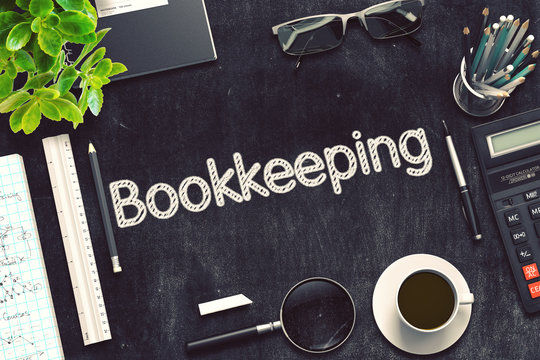7 Tips for Lawyers That Do Their Own Bookkeeping
- David Bialecki
- Sep 25, 2025
- 4 min read

Bookkeeping isn’t the most exciting part of running a law practice, but it’s one of the most critical. Whether you’re a solo attorney or part of a small firm, accurate financial management ensures compliance with regulations, keeps your business healthy, and provides clarity for future growth. Many lawyers struggle with bookkeeping because it requires a balance of standard accounting practices and industry-specific requirements. Here are 7 ways how lawyers should approach bookkeeping to stay compliant and organized.
1. Keep Client Funds Separate
One of the most important rules for lawyers is properly managing trust accounts (IOLTA accounts). Client money, such as retainers, settlements, or escrow funds, must be kept separate from your firm’s operating account.
· Never commingle funds: Don’t mix personal, operating, or client funds.
· Track every transaction: Maintain a detailed ledger for each client trust account.
· Reconcile monthly: Regular reconciliation prevents errors and ensures compliance with state bar rules.
The penalty for mismanaging Trust Accounts can be steep, ranging from state bar disciplinary actions (suspension, disbarment, fines, lawsuits from clients) to potential criminal charges (wire fraud and embezzlement).
2. Use Legal-Specific Accounting Software
Generic accounting tools may not fully address a law firm’s needs. Legal-specific software like Clio Manage and LeanLaw integrates billing, trust accounting, and matter management in one system. This helps you:
· Automatically track billable hours and expenses.
· Generate compliant trust account reports.
· Simplify invoicing and client payments.
Both software integrate with QuickBooks. QuickBooks is the leading accounting software for small businesses. It automates most of the accounting tasks that allow you to be more efficient and reduces errors. In addition, this automation will make like easier for your CPA, which could help you save money in taxes.
3. Record Income and Expenses Consistently
Accurate financial records are essential for tax purposes and firm management.
· Track income by matter: Know which cases generate the most revenue.
· Categorize expenses: Differentiate between operating expenses (rent, salaries, software) and reimbursable client expenses.
· Save receipts: Maintain digital copies for IRS compliance and easy reference.
You must know the difference between an asset, liability, revenue, and expenses. If you don’t, you can end up categorizing transactions incorrectly, which will most likely result in a costly clean-up.
4. Reconcile Accounts Monthly
Each month, compare your records with your bank and credit card statements. This ensures accuracy and helps catch errors or fraud quickly. Think of it as balancing your checkbook for your business. Under no circumstance should you close the books for a month with a variance between your books and the bank that you cannot explain. As mentioned earlier, improper classification of transactions can lead to a costly clean-up. Equally as costly is having a cash balance difference between your books and the bank. Often the two are related. Fix one and you’ve fixed the other.
5. Maintain Compliance With Bar Association Rules
Every state bar has rules governing how lawyers must handle client money and report financial activity. Failure to comply can result in fines, or worse, disbarment. A strong bookkeeping process ensures you meet all trust accounting, reporting, and record keeping requirements.
6. Work With a Professional Bookkeeper or Accountant
Even if you’re comfortable with day-to-day record keeping, working with a bookkeeper who understands law firm accounting can save time and reduce risk. They can:
· Ensure compliance with trust accounting rules.
· Provide financial reports for decision-making.
· Prepare your books for tax season.
One of the core reasons you need clean books is to produce valuable insights on how your business is doing. This is done for financial reporting analysis. Review:
· Profit & Loss Statement (Income Statement): This report shows revenue and expenses over a period of time
· Balance Sheet: This report provides a snapshot of assets, liabilities, and equity at a specific point in time
· Cash Flow Statement: This report tracks how money moves in and out of your business.
These reports give you the big picture so you can make smarter decisions.
7. Use Your Financial Data for Growth
Bookkeeping isn’t just about compliance. It’s also a tool for growth. Reviewing financial reports regularly helps you:
· Identify your most profitable practice areas.
· Set appropriate billing rates.
· Plan for hiring, expansion, or investments.
Set aside time weekly (or at least monthly) to keep records updated. Consistency prevents overwhelm and ensures accuracy. While many small businesses can manage their own books early on, there comes a point when outsourcing makes sense, such as when your business grows, your finances become complex, or you’d rather focus on higher-value tasks. A professional bookkeeper or CPA can save you time, money, and stress.
Conclusion
For lawyers, good bookkeeping is about more than balancing the books. It’s about protecting client funds, staying compliant, and running a profitable practice. By using the right tools, reconciling accounts regularly, and leaning on professional support when needed, you can spend less time worrying about finances and more time focusing on your clients.
Is your business where you want it to be? If not, as always, you can contact me for a free consultation.
Dream Big. Think Big. Go Big.















Comments